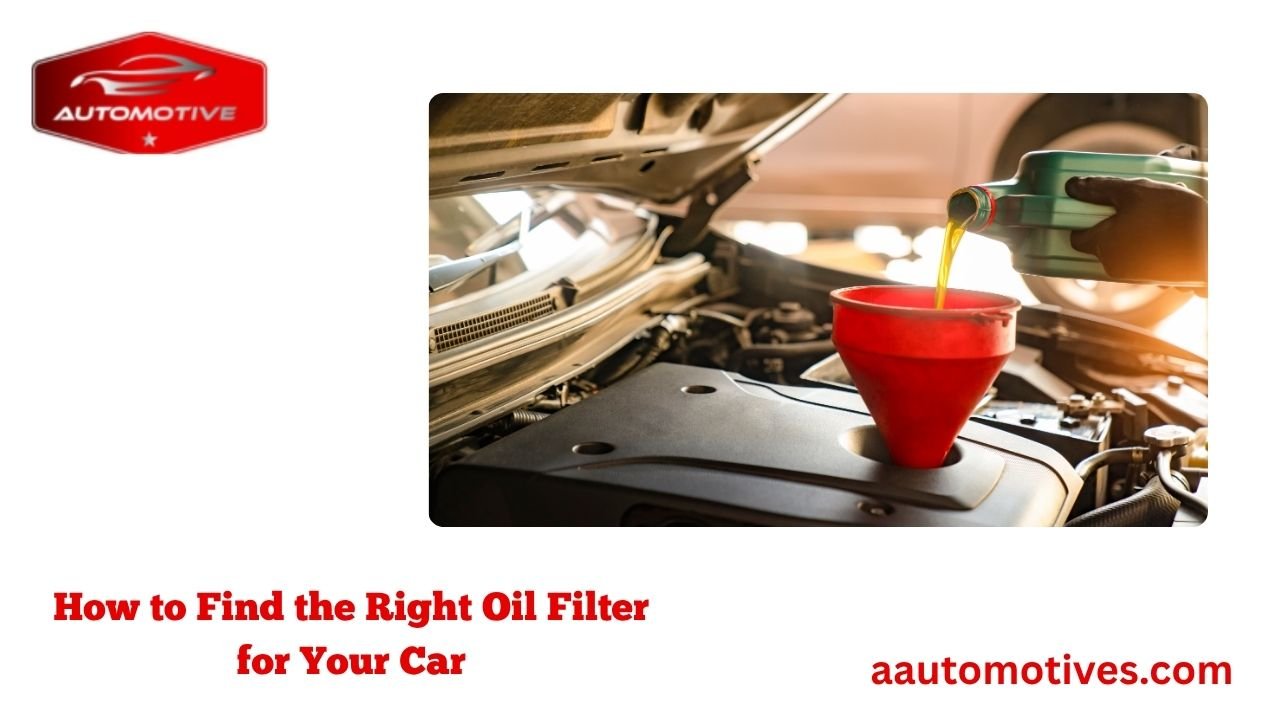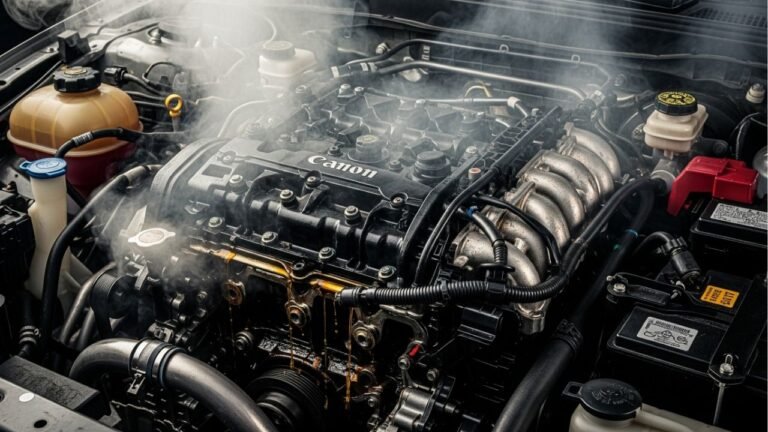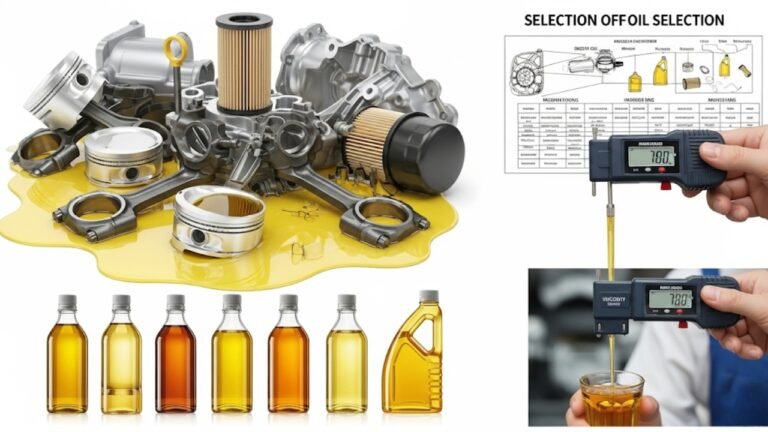How to Find the Right Oil Filter for Your Car

Ever had one of those days where your car just didn’t feel right? Maybe the engine sounded a bit rough, or the ride didn’t feel as smooth. I’ve been there, more times than I’d like to admit. One of the sneakiest culprits? A clogged or wrong oil filter. It’s tiny, cheap, and often forgotten—until it’s not.
When you find oil filter for car, you’re not just picking up a spare part. You’re making a small decision that protects the very heart of your car: the engine. Think of your engine like a human heart. It needs clean oil to function, just like our blood needs to stay free of toxins. The oil filter is like a liver—it filters out the grime, metal shavings, and gunk that builds up over time.
This guide is your no-jargon, no-fluff map to navigating the world of oil filters. I’m here to walk you through it like an old friend showing you the ropes. Ready? Let’s dive in.
The Basics: What Is an Oil Filter and Why It Deserves Your Respect

An oil filter traps all the little nasty bits that get picked up in the oil as it moves through your engine. These can be microscopic pieces of metal, soot, dirt, or even leftover sludge from old oil changes. Without a good filter, all that stuff goes straight back into your engine.
But here’s what’s wild—not all oil filters are created equal. Some are too small. Some don’t have the pressure rating your car needs. Some are just, well, cheap. When you take the time to find oil filter for car that’s actually meant for your engine, you extend the life of your vehicle, sometimes by years.
Personally, I used to think any old filter would do. Until my old Honda started making a sound like a lawnmower dragging a chain. A quick check showed the wrong filter was choking my oil flow. Lesson learned.
How to Find the Right Oil Filter for Your Car: Step-by-Step
Let’s get practical. Here’s how to find oil filter for car in a way that’s both smart and easy:
Step 1: Know Your Car Inside Out
Start with the basics:
Year
Make
Model
Engine size
For example, a 2016 Toyota Camry with a 2.5L engine might use a different filter than the 3.5L V6 model from the same year. Write this info down. You’ll use it everywhere—from Google searches to auto store visits.
Step 2: Use Online Tools (But With Caution)
Plenty of sites offer “filter finder” tools. Just type in your car’s details, and they suggest the right match. Here are a few reliable options:
| Website | Known For | Caution |
|---|---|---|
| AutoZone | In-store availability | Sometimes shows multiple filters |
| Advance Auto Parts | Compatibility accuracy | Double-check sizes |
| RockAuto | Price and variety | Be careful of overseas brands |
| Mobil 1 | Quality brand filters | Fewer generic options |
While these tools are handy, don’t rely on them blindly. I once bought a filter online that was “guaranteed to fit” my Subaru, only to find it was an inch too short. Not a good day.
Step 3: Match OEM Specs
Every car comes with an OEM (Original Equipment Manufacturer) oil filter recommendation. You’ll find it:
In your owner’s manual
On the manufacturer’s website
Stamped on the existing filter (if it’s original)
OEM filters are your safest bet. They’re made to handle your engine’s oil pressure, temperature, and flow needs. If you go aftermarket, make sure the specs match exactly.
Common Mistakes People Make (and How to Avoid Them)
We’ve all made rookie mistakes. Here are a few I’ve learned the hard way:
Buying by brand, not fit: Just because your buddy swears by Fram doesn’t mean it works for your Ford Fusion.
Assuming “one size fits all”: Nope. Even cars from the same year and brand can have different engines requiring different filters.
Forgetting to check the anti-drain valve: Some filters come with a valve that prevents oil from draining out when the engine is off. If your car needs it and the filter doesn’t have it—you’re in for rough starts.
Reusing an old gasket: This is huge. Always replace the rubber gasket on the filter. Reusing it is like patching a hole with duct tape. It won’t last.
Types of Oil Filters: Not All Filters Are Equal
There’s more variety here than you might expect. When you find oil filter for car, here are the types you’ll come across:
1. Mechanical Oil Filters
These use a cellulose or synthetic filter element. They physically trap particles as the oil flows through. Good for most standard vehicles.
2. Magnetic Oil Filters
These use magnets to pull metallic particles out of the oil. Often used in performance or racing engines. Not usually necessary for everyday drivers.
3. Centrifugal Filters
These spin the oil at high speed to fling particles outward. Super effective, but also super expensive and rare in normal cars.
4. Cartridge Filters
These don’t have their own casing and fit into a chamber in your engine. Becoming more common in European cars. They’re eco-friendly but a bit trickier to install.
5. Spin-on Filters
The classic kind. Comes in its own casing, easy to screw on and off. Most cars on the road still use this style.
Each of these has pros and cons. Your best move? Stick with what your manual recommends. If your car came with a spin-on filter, don’t try to upgrade to a magnetic one unless you really know what you’re doing.
Signs You Need a New Oil Filter (Right Now)
You might already need a new filter and not even know it. Watch out for these signs:
Low oil pressure: The engine light may flicker, or the pressure gauge drops.
Dirty oil: Pull the dipstick. If the oil is thick and gritty, your filter isn’t doing its job.
Engine noises: That ticking or knocking? Often caused by dirty oil struggling to flow.
Overheating: Gunked-up oil causes more friction, which builds heat fast.
If your engine feels off, don’t panic. Just check the basics first. When I switched to the right filter, my old Camry purred like a kitten again. And trust me, there’s nothing like that relief.
Quick Comparison Table: OEM vs Aftermarket Filters
| Feature | OEM Filter | Aftermarket Filter |
|---|---|---|
| Fit & compatibility | 100% match | Can vary by brand |
| Cost | Usually higher | Lower or competitive |
| Quality control | Manufacturer tested | Varies widely |
| Warranty support | Often covered by car maker | Rarely covered |
| Availability | At dealerships or OEM stores | Widely available |
If you’re on a tight budget, some aftermarket filters are decent. But don’t sacrifice fit or pressure ratings to save $5. You’ll spend 20 times that fixing the damage.
Oil Type Matters: Synthetic vs Conventional and What That Means for Your Filter
You wouldn’t wear hiking boots to a beach party, right? The same logic applies to your oil and filter combo. Using synthetic oil with the wrong filter is like putting premium fuel in a rusty gas tank—it won’t do much good.
Here’s the deal: synthetic oil has a longer life, better resistance to heat, and flows smoother at low temperatures. But this also means it carries more debris through your engine. A basic, low-grade filter won’t cut it.
If you use synthetic oil:
Get a high-efficiency oil filter that can trap smaller particles.
Look for filters labeled “for extended oil change intervals.”
These usually feature synthetic filter media that lasts longer and works better under pressure.
If you’re using conventional oil, you can use a standard cellulose filter. These still need to be changed with every oil change, but they’ll do the job fine.
Remember: the oil and filter are partners. They need to work well together for your engine to stay healthy. One weak link, and the whole system struggles.
How Often Should You Change Your Oil Filter?
I get this question all the time. “Can I skip the filter if I’m changing the oil?” Short answer: don’t.
Most experts (and car manuals) say to change the oil filter every time you change the oil. For most cars, that’s:
Every 3,000 to 5,000 miles for conventional oil
Up to 7,500–10,000 miles for synthetic oil (only if using high-quality filters)
Let me share something real. A buddy of mine drives a late-model BMW and thought he could skip a filter change during his last oil top-up. “It’s just a filter,” he said. A month later? Warning lights everywhere and oil pressure through the floor. Turns out, the old filter had collapsed internally, choking the system.
Not worth the gamble.
Changing your oil and not replacing the filter is like putting fresh water in a dirty fish tank. Sure, it’s cleaner—but not clean.
DIY Tips: How to Replace Your Oil Filter Like a Pro (Even if You’re a First-Timer)
Doing it yourself? High five. It’s simpler than you think. Here’s the friendly version of how to do it:
What You’ll Need:
Correct oil filter
New oil (type recommended in your manual)
Wrench or oil filter tool
Drain pan
Funnel
Rags or paper towels
Rubber gloves (trust me on this)
Steps:
Warm the engine for 2–3 minutes to thin the oil, but don’t let it get hot.
Jack up the car safely and place the drain pan underneath the oil pan.
Remove the drain plug and let oil flow out.
Unscrew the old filter. Be ready—it will drip.
Check the old gasket didn’t stick to the engine. If it did, peel it off.
Rub a little new oil on the gasket of the new filter to seal it well.
Screw in the new filter by hand. No tools needed—hand tight is enough.
Replace the drain plug and add new oil through the top.
Start the engine for 30 seconds. Turn it off and check for leaks.
Check oil level with the dipstick and top up if needed.
It’s that easy. Plus, doing this yourself means you know for sure that the right filter is in there. No guesswork. No overcharged service fees.
Shopping Smarter: Brands, Price Tags, and What to Avoid
Buying an oil filter shouldn’t feel like solving a Rubik’s cube. Here’s what to keep in mind when you shop:
Good Brands to Trust:
Bosch – Strong build, long life, great for synthetic oil
Mobil 1 – Premium filters, especially for extended intervals
WIX – Consistently high-rated in industry reviews
K&N – Performance filters with solid reputation
Fram Ultra Synthetic – Affordable, reliable choice for most vehicles
What to Avoid:
Unbranded filters from unknown sellers
Super cheap filters (you get what you pay for)
Filters without a verified pressure rating or anti-drain valve if your engine requires it
If it seems too good to be true, it probably is. That $3 filter might cost you hundreds in engine damage later.
Real Talk: Why the Wrong Filter Can Cost You Big
Okay, time for a heart-to-heart. We all try to save time and money where we can. But using the wrong oil filter isn’t just a “little mistake.” It’s a shortcut that can lead to some pretty ugly outcomes:
Reduced oil pressure which can starve your engine
Filter blowouts from pressure mismatches
Unfiltered debris causing wear on engine parts
Sludge buildup that kills fuel economy and power
Overheating issues from oil flow blockages
Imagine going for a run with a straw for a mouthpiece. That’s your engine on a bad filter—struggling, gasping, and slowly breaking down.
It’s a tiny part, but it plays a massive role.
Final Thoughts: Care for Your Car Like It’s Part of the Family
Your car does a lot for you—getting you to work, helping with grocery runs, road trips, school pickups, and everything in between. And the engine? It’s the heart that keeps it all going. Finding the right oil filter for your car is a small act of care that can make a world of difference.
Don’t overthink it. Just:
Know your car’s details
Stick to OEM specs or trusted equivalents
Change the filter with every oil change
Shop smart and avoid bargain bin brands
I like to think of it like feeding a pet. You wouldn’t give your dog stale food just because it’s cheaper. Your car deserves the same kind of love.
Keep it simple, stay consistent, and your engine will return the favor with years of faithful service. So the next time you go to find oil filter for car, remember—you’re not just buying a part. You’re making a promise to take care of what takes care of you.






